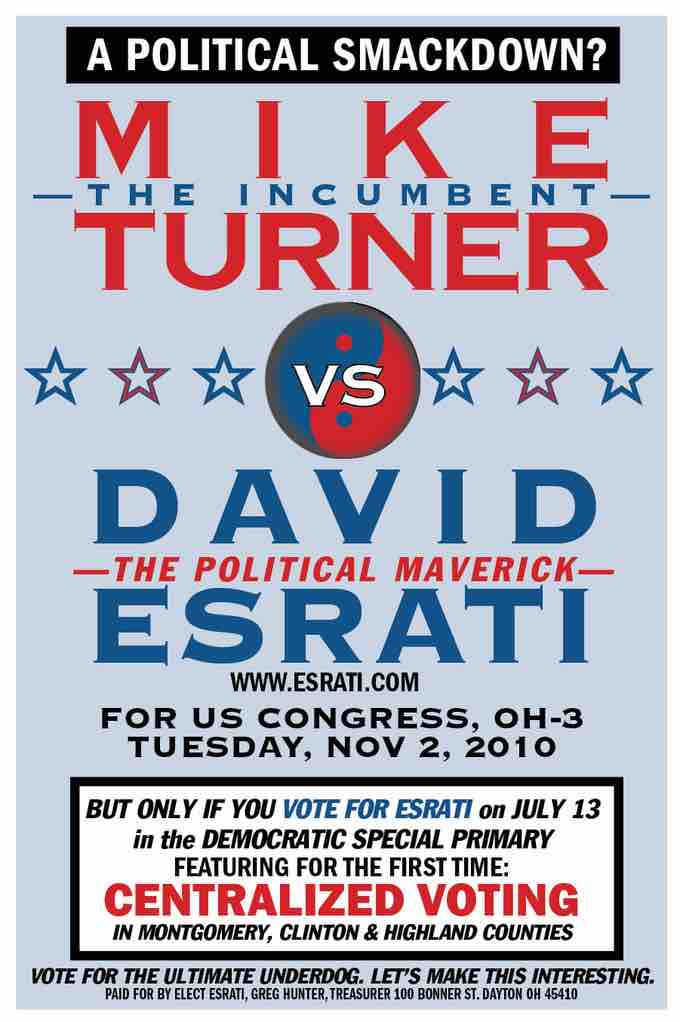Forming Opinions through Knowledge
While it is known that agents of political socialization (such as family, peers, church, and school) and major life and political events impact political values and public opinion, some argue that political knowledge plays a large role as well.
In this view, public opinion is formed and shaped when people investigate and research politics, and are consequently able to form their own opinions. How much people know about their government and their leaders, where they receive their information, the quality and impartiality of the sources they used, all impact the formation of their political values and opinions .

Political Knowledge
Some people are that political values are formed as a result of political knowledge. Researching two political candidates, as illustrated in this flyer, help increase political knowledge.
Forming Opinions without Knowledge
The formation of public opinion assumes that Americans know enough about political issues to shape opinions based on political knowledge. However, certain statistics demonstrate that many Americans lack this basic knowledge about politics. Many people cannot identify important political figures or are misinformed about important political issues, such as how much foreign aid the United States donates or what is actually written in the Constitution.
This type of voter ignorance is due to the fact that, oftentimes, the cost of investigating political issues and forming opinions outweighs the benefits. This theory, called "rational ignorance," effects the quality of decisions made by large numbers of people and can be seen in general elections, where the probability of any one vote changing the outcome is very small.